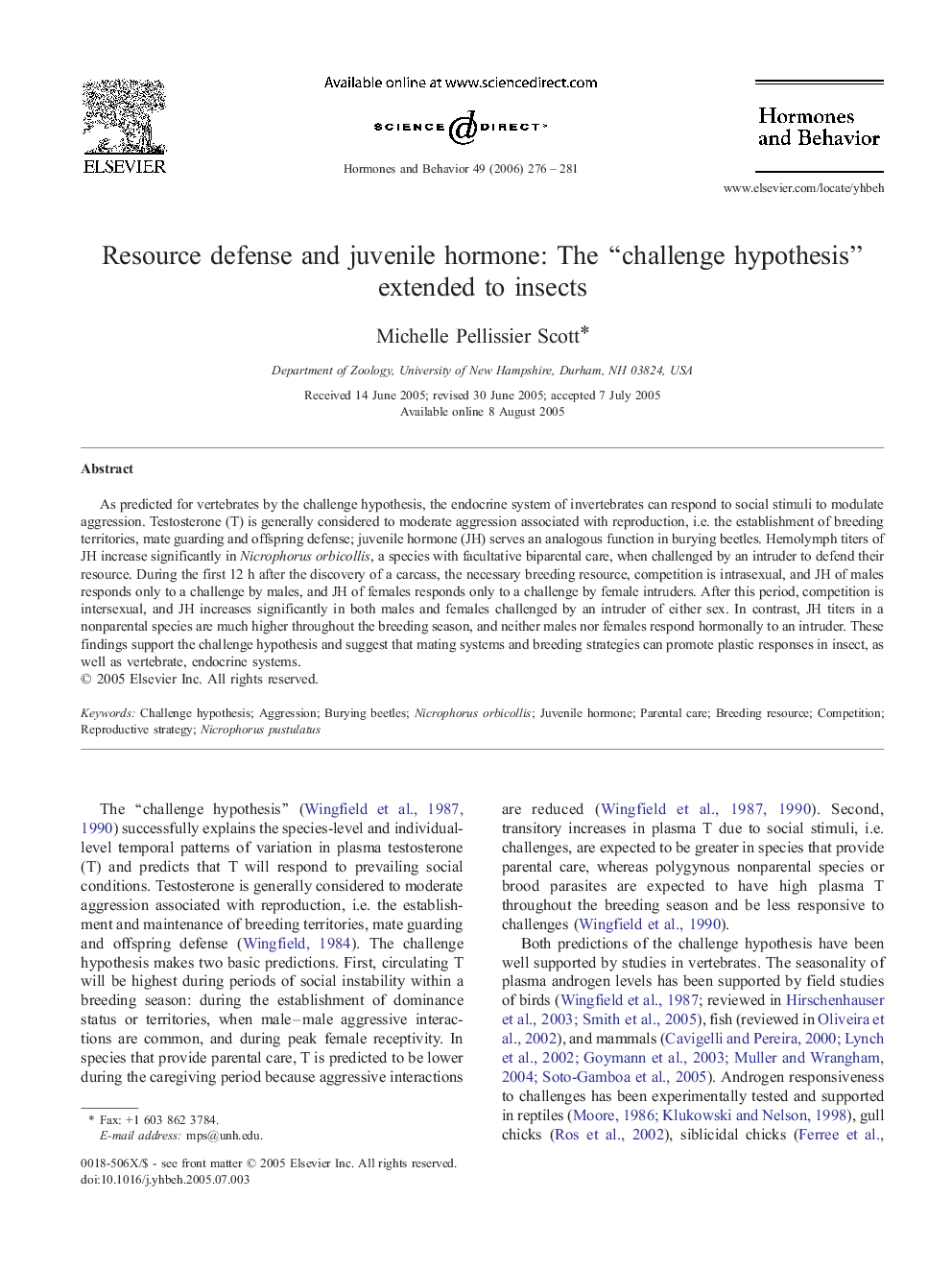| Article ID | Journal | Published Year | Pages | File Type |
|---|---|---|---|---|
| 323955 | Hormones and Behavior | 2006 | 6 Pages |
As predicted for vertebrates by the challenge hypothesis, the endocrine system of invertebrates can respond to social stimuli to modulate aggression. Testosterone (T) is generally considered to moderate aggression associated with reproduction, i.e. the establishment of breeding territories, mate guarding and offspring defense; juvenile hormone (JH) serves an analogous function in burying beetles. Hemolymph titers of JH increase significantly in Nicrophorus orbicollis, a species with facultative biparental care, when challenged by an intruder to defend their resource. During the first 12 h after the discovery of a carcass, the necessary breeding resource, competition is intrasexual, and JH of males responds only to a challenge by males, and JH of females responds only to a challenge by female intruders. After this period, competition is intersexual, and JH increases significantly in both males and females challenged by an intruder of either sex. In contrast, JH titers in a nonparental species are much higher throughout the breeding season, and neither males nor females respond hormonally to an intruder. These findings support the challenge hypothesis and suggest that mating systems and breeding strategies can promote plastic responses in insect, as well as vertebrate, endocrine systems.
